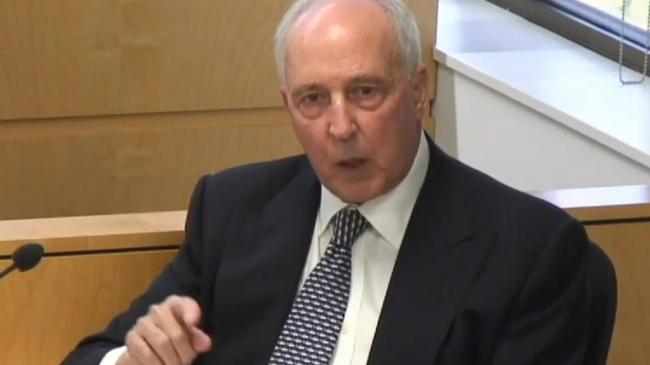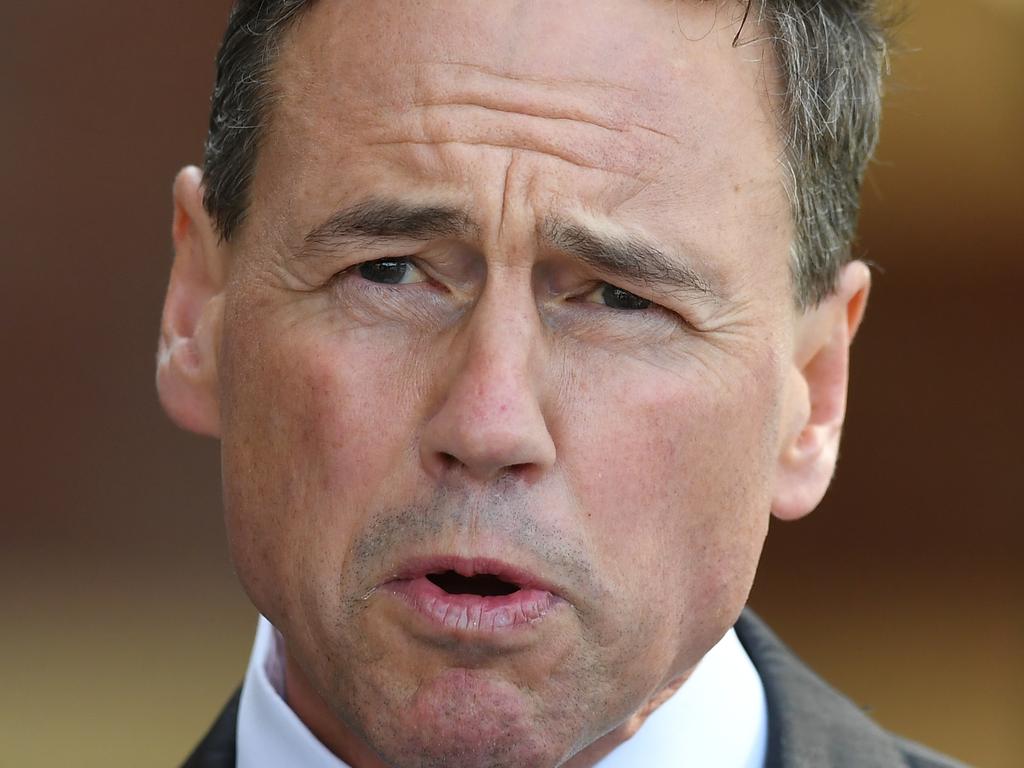Aged care royal commission: Super won’t cover it: Keating’s shift on aged care
Former PM Paul Keating used to believe a longevity levy could fund elderly Australians. Now he backs a ‘post-funded’ model.

All Australians should be given a HECS-style loan from the government to pay the costs of their aged care, which will be repaid from their estate on their death, Paul Keating says.
Appearing before the aged-care royal commission on Monday, the former prime minister said he had given up on his decades-long advocacy for a “longevity levy”, where employers contributed a proportion of an employee’s income in addition to superannuation for use only when that employee reached 80 or 85.
Mr Keating told the commission that if he had won another term in 1996, he would have been minded to introduce a longevity levy, but it was now too politically sensitive given opposition to increasing the superannuation rate.
“You will get the moans from the small business organisations and the violin playing by members of the Liberal Party backbench. So adding to the prefunding model of super is, I believe, going to be politically difficult,” he said.
Mr Keating said the current system put too much pressure on young generations who would be paying for the aged care of an increasing cohort of very old, frail Australians, many of whom were likely to live into their 100s. “That cohort, the tax-paying cohort, many of them have low incomes, they’re renters, they start life with a HECS debt if they’ve been to university and, of course, they pay the GST 10 per cent cold, regardless of income,” he said.
Mr Keating was giving evidence to the commission as it examines how to fund and finance quality aged care. His new model is “post-funded”, he said, similar to the Higher Education Charge.
“The commonwealth could advance as loans to every aged Australian so much as to meet their needs in support services to stay at home or alternatively, in care accommodation,” Mr Keating said. “We’ll call it a wealth account.
“The commonwealth would advance money to the wealth account to pay for your home care accommodation or age accommodation, and upon your death, and no earlier, would there be a credit to that loan account from the estate of the deceased person.
“So their bricks and mortar assets or their superannuation, if they have got any residual superannuation assets or cash or other investments … upon the death of the aged person, the commonwealth account would then receive a credit from the estate.”
Mr Keating said it was more equitable, and if people couldn’t cover the cost, the government simply wouldn’t recover the loans, similarly to HECS.
“We’re not forcing anyone out of their home in old age, we’re not obliging aged persons to negatively mortgage their home, you’re not asking members of families to chip in and pay for their relatives in their accommodation or their care,” he said.
Counsel assisting the commission, Peter Gray QC, opened the two-week hearing by raising concerns at the lack of transparency of the current aged-care funding provided by the taxpayer. “Homecare providers are not required to report to the government what kinds of goods and services are provided with the homecare package subsidies the commonwealth supplies, which amount to about $2.5bn a year,” Mr Gray said.
“Residential care providers receive about $11.7bn a year in total commonwealth care subsidies … (but) their annual reporting requirements do not adequately reveal how that money is used or what profit or loss is made in providing residential care services.”








To join the conversation, please log in. Don't have an account? Register
Join the conversation, you are commenting as Logout